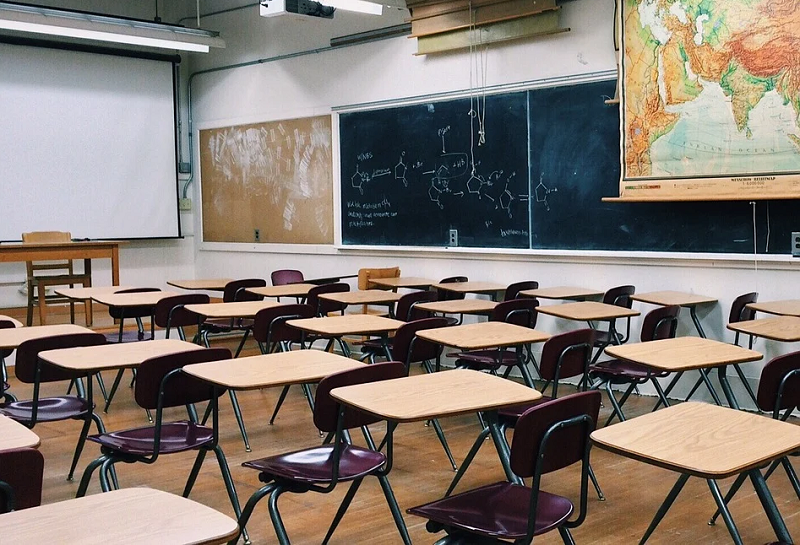As schools across England re-open, a new report reveals the true impact of the pandemic on students over the last 11 months – with four-in-five (80%) teachers and two thirds (65%) of parents asserting that the loss of effective teaching time due to Covid-19 will have a long-term impact on pupils’ education.
According to new research from RM – a supplier of technology to the education sector – four-in-five (80%) teachers believe that the loss of effective teaching time over the last 11 months due to the Covid-19 pandemic will have a long-term impact on pupils’ education.
Other key findings in the report include:
• Four-in-five (79%) teachers and almost three-quarters (70%) of parents recognising that their own school’s pre-Covid use of technology was insufficient for what is now required to deliver good educational outcomes for children.
• More than three-quarters (78%) of parents believe good technology in schools can improve learning outcomes – and teachers agree, albeit with a lower 61% believing this to be the case.
• Six-in-ten (61%) of Primary and two-fifths (39%) of Secondary School teachers claim that their school has not implemented any new technology in response to the disruption caused by Covid.
• Six-in-ten (58%) parents have a negative perception of their school’s technology capabilities, with 61% of parents feeling their child’s school is not prepared for future disruptions.
The research comes as education establishments across England prepare to re-open their school gates to all pupils from 8th March following the latest two months of remote learning for all but the vulnerable and children of key workers.
The report reveals how teachers and parents’ attitudes to technology have changed, with 79% of teachers and 70% of parents recognising that their school’s historic use of technology (pre-Covid) was insufficient for what is now required to deliver good educational outcomes for children.
Despite this, 61% of Primary and 39% of Secondary School teachers said that their school did not implement any new technology in the first six months in response to the disruption caused by Covid. This is despite an acknowledgement that technology has an important role to play, with both parents (78%) and teachers (61%) believing that technology in schools (edTech) is improving learning outcomes for their children.
Teachers cite a lack of training and time wasted setting up technology as their biggest challenges when using technology – for parents it is poor WiFi connectivity and a lack of suitable devices in the home. Over half of teachers also feel that they lack the right technology to be able to support their pupils.
Technology has certainly risen up the agenda for both teachers and pupils; 61% of parents admit that their perceptions of their child’s school’s technology have changed since the first lockdown was announced, albeit half of those (29% of those surveyed) feel it has changed for the worse, with 58% of all parents now having a negative perception of their school’s technology capabilities.
But it is not all bad news. Over half (54%) of teachers feel that parents have been supportive during the lockdown – with many commenting how it has helped parents better understand the challenges that teachers face. The research suggests that Secondary School parents are likely to have been more supportive than Primary ones, with KS5 teachers – in particular – highlighting the significant levels of parental support they have received.
One thing that both agree upon is the need to know more – 51% of teachers and 60% of parents feel they need a greater understanding of technology to ensure their children receive better learning outcomes as a result.
John Baskerville, managing director of RM’s technology division, said, “As an industry, we’ve faced a year like no other. Teachers, parents and children have had to adapt to completely new ways of teaching and learning, much of which has been underpinned by technology. The majority of schools have risen to the occasion and teachers have worked tirelessly to educate our children during lockdown, but it’s clear that we still have a way to go in ensuring technology is being used effectively, and supports teachers in providing children with the education they deserve.”
The role of technology in supporting teachers and students during the pandemic cannot be underestimated, yet the research paints a concerning picture about the consistent use of technology within schools. The findings show that:
• not all teachers are comfortable using technology – a third (30%) say they avoid using digital tools as they feel they detract from their role
• nearly two-thirds (60%) of Secondary School teachers say they don’t have appropriate training on how to use specific software
• a third (37%) of Primary School teachers say that technology distracts students from learning, whilst 42% are unsure of how to integrate technology into their teaching style.
“Before the pandemic, only a minority of schools were talking about remote or blended learning. But that all changed with the lockdowns, and I am in awe of the resourcefulness of teachers in this country who have ensured their students have the best chance possible to maintain their education. It is clear that those schools that had the right technology in place are the ones that made the leap to remote learning most easily. As an industry, we must acknowledge this point and commit that one of the legacies from Covid is that schools and teachers are equipped with the best possible technology to ensure that they can give pupils the education they deserve – no matter what is thrown at them – and that we can use this as a catalyst to enhancing the learning process for everyone in this country” Baskerville concluded.
Methodology
The research was run during October 2020 and the data was collected from opted-in members of the National Education Research Panel (NERP), operated by C3 Education; which included 625 curriculum leaders and 634 parents in England.
